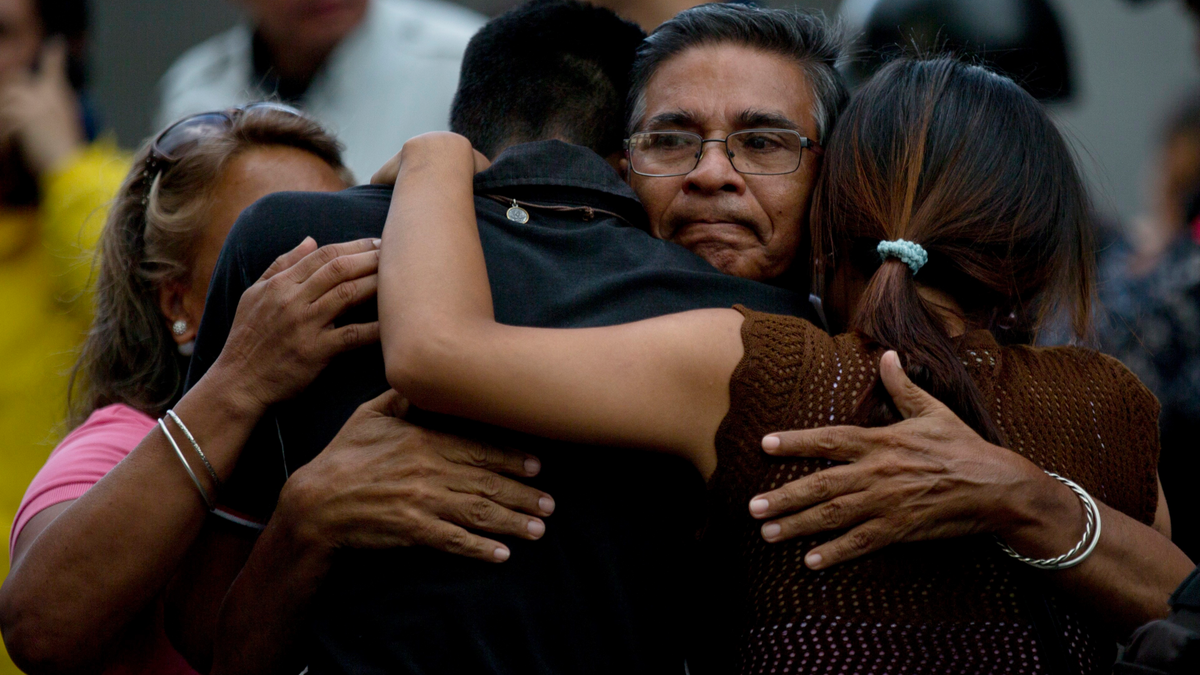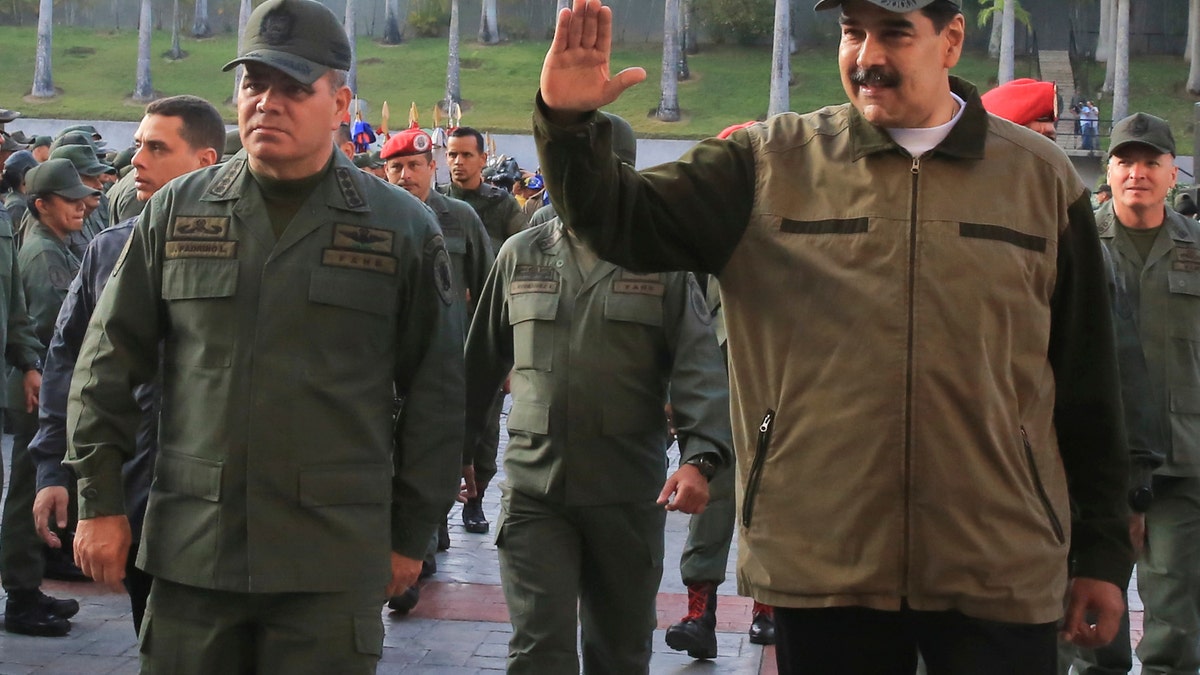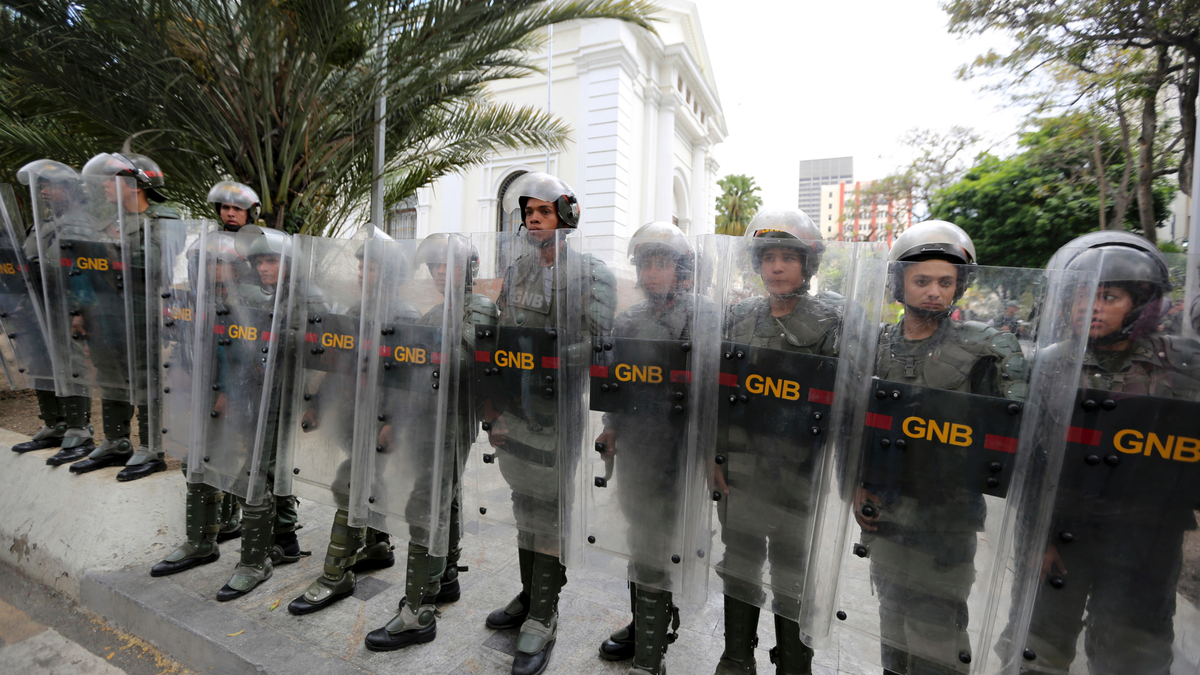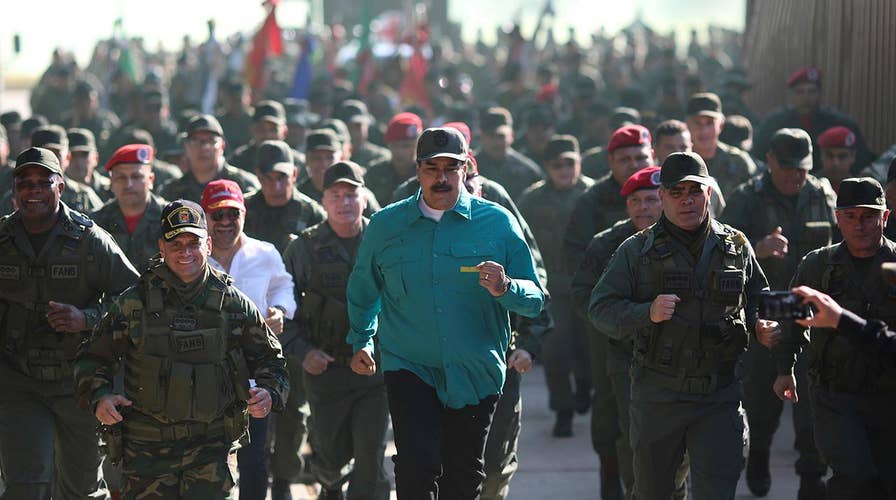Will the US intervene militarily in Venezuela?
Retired USMC Lt. Col. Dakota Wood says leaving all options on the table is a smart diplomatic move for the U.S.
In October, Fernando Alban – the councilman of dissident Venezuelan political party Primero Justicia – spoke out against the embattled nation’s leader Nicolas Maduro at the United Nations in New York. On his return to Simon Bolivar International Airport, he was quietly seized by Venezuela's Bolivarian National Intelligence Service (SEBIN). Three days later, Alban plunged to his death from a secretive 10th-floor building while undergoing interrogation.
The official line is suicide, but many are suspiciously pointing to his death at the hands of the country’s most formidable security and intelligence wing.
Under the rule of the Vice President of Venezuela, currently Delcy Rodriguez, the internal security auspices have indeed clocked up a thick file of human rights violations and accusations of torture of those who oppose the Maduro-helmed regime.
“The SEBIN operates across Venezuela conducting surveillance and patrolling as a political police,” Johan Obdola, former Venezuelan counter-narcotics chief and founder of the Latin America-focused Security and Intelligence firm, IOSI, told Fox News. “However, its main operations are based on physical intelligence operations across the nation and abroad, having its main objectives to neutralize political opponents of the regime. They are the most feared.”
MADURO’S 'COLLECTIVOS' STRIKE TERROR WHILE TRYING TO WIN BACK SUPPORT OF VENEZUELA'S MOST VULNERABLE
While the SEBIN has its headquarters in El Helicoide in Caracas – with a cryptic prison locals call the Tomb (La Tumba) five floors below the surface in one of its Caracas offices – its branches and satellite locations spawn the country. Some say agents also operate in Venezuelan diplomatic representations in various parts of the globe. In 2012, the Nuevo Herald reported that around a dozen apparent SEBIN agents operating in the diplomatic sphere in the United States were forced to leave.
SEBIN – which for decades had been called the National Directorate of Intelligence and Prevention Services (DISIP) until former President Hugo Chavez changed the name in 2009 – ramped up its involvement in the drug trade around 2006, well-placed sources said. The boost came just months after Chavez expelled the U.S. Drug Enforcement Agency (DEA) from Venezuela.
One 54-year-old Venezuela government defector, who can only be identified by the pseudonym Ras given family ties still inside the fast-deteriorating country, long served as a loyal intelligence confidante close to Hugo Chavez. He was then promoted to the top command section of the SEBIN with the position of commissioner until late 2014 when the “level of repression the agency was ordered to implement against the protesters” became too much to stomach, and in his view, the narcotics change became too entrenched in their own day-to-day missions.
The narco-trafficking ratcheted up around 2004, Ras stressed, and in 2007 leaped to a new level. He claims Chavez personally ordered covert missions to send cocaine to the United States and Europe, in coordination with the FARC rebels in neighboring Colombia, and then through the Mexican cartels that were active in cross-border enterprise.
“They also discussed the involvement of a Venezuelan drug lord, Walid Makled, who was an important drug capo in Venezuela and who received big contracts from the Venezuelan government. Later on, Walid Makled's drug operations started bothering Chavez. So in 2008, Chavez ordered Tareck El Aissami, then Minister of Interior, to ‘sacrifice’ Walid,” Ras said. “So Tareck ordered the arrest of Walid, then Chavez ordered Tareck to take over the drug operation, as this action against the USA could not be stopped.”

Staff members of jailed councilman Fernando Alberto Alban Salazar embrace outside the Bolivarian National Security Service (SEBIN) headquarters in Caracas, Venezuela, Monday, Oct. 8, 2018. Venezuela's Attorney General Tarek William Saab said Monday that Salazar, who was arrested on suspicion of involvement in a failed assassination attempt on President Nicolas Maduro, has died of suicide. (AP Photo/Fernando Llano)
In early 2017, Maduro appointed Aissami to be his Vice President, and thus relegated to the critical role of overseeing the SEBIN. Aissami – born to a Lebanese mother and Syrian father – is one of the wealthiest men in the country, and for years has been under investigation by U.S. prosecutors for having close connections to Hezbollah and financing from their drug trafficking.
Aissami remained in the second-in-command role until June of 2018, when he was shuffled to the position of Minister of Industries and National Production.
“Venezuela is not a country for internal operations of drug cartels, but a strategic hub not only for the two cartels of the Venezuelan government; but to other regional and international drugs, criminal and terrorist groups who operate with the protection and support of the regime,” Ras emphasized. “Most of these drugs reaches USA and Europe, via Mexico, Dominican Republic, Africa, Brazil. Most military personnel in Venezuela are involved in these operations at all levels across the nation.”
Ras also underscored that for years Hezbollah members – who were profiting heavily from narco safe haven in Venezuela and operating out of the notorious tri-border region – between Argentina, Paraguay, and Brazil – had long been acquiring Venezuelan passports.
“Beginning around 2010, ten to fifteen men would arrive every two or three months to one particular military unit – the Special Infantry Battalion 421 – where they are fed and taken to the National Office of Identification SAIME in Aragua State where they receive Venezuelan ID including passports,” he recalled. “Then they are sent to other Latin American nations, some of them using the airline Cubana de Aviation – going to Cuba – as well as to other islands in the Caribbean.”
One Caracas-based journalist pointed out that “everyone knows this is happening, but the degree to which the drug operation has been happening is much more elaborate than anyone knew."
DRUG TRAFFICKING KEEPING MADURO IN POWER IN VENEZUELA, ANALYSTS SAY
Emanuele Ottolenghi, a senior fellow and Latin America expert at the Foundation for Defense of Democracies (FDD), described the SEBIN as a service that should function as Venezuela’s version of the FBI, but in practice is “a state tool of political repression used to silence dissent and terrorize opponents.”
“SEBIN remained until very recently the whip the regime used to crack dissent. In the last few days, questions have begun to arise with regard to the possible role of some senior figures in switching allegiance and seeking to remove Maduro,” he said. “It remains a formidable tool of repression.”

In this photo released by Miraflores Press Office, Venezuela's President Nicolas Maduro, right, accompanied by his Defense Minister Vladimir Padrino Lopez, waves upon his arrival to Fort Tiuna, in Caracas, Venezuela, Thursday, May 2, 2019. (Jhonn Zerpa/Miraflores Press Office via AP)
Ottolenghi concurred that the agency is very much a mastermind behind the burgeoning drug trade.
“They have given protection to at least one key drug lord and have sought to leverage their long reach to take a U.S. journalist hostage in a bid to swap her for the two nephews of President Maduro after they were detained in the U.S on drug charges,” he noted.
Maduro’s nephews, who were primarily raised by his wife Cilia Flores, were sentenced to 18 years behind bars in late 2017, two years after being extradited to the U.S. from Haiti and convicted of drug trafficking charges.
Moreover, Ras is far from surprised that, given the strength of the SEBIN and drug financing, the regime inside the once oil-rich and prosperous nation is yet to crumble.
“It is extremely difficult as there is a complicated criminal and terrorist structure supporting Maduro,” he asserted.

Venezuelan Bolivarian National guards officers form a cordon around the National Assembly building as the opposition-controlled congress met to discuss a move that could provide political cover for greater international involvement in the nation's crisis, in Caracas, Venezuela, Tuesday, May 7, 2019. Military police prevented journalists from entering the National Assembly, and some reporters were harassed by government supporters outside the building. (AP Photo/Fernando Llano)
Obdola echoed that since Maduro’s arrival to power in 2013, SEBIN has “radicalized its violent actions against the opposition, protestors, and the rest of the civilian population.”
“Being under the direct order of the Vice President of the country, SEBIN can even hold political prisoners after a judge has ordered a release, in exceptional cases,” he continued.
Nonetheless, the U.S. is dangling incentives for even SEBIN operators who break rank.
Earlier this month, Gen. Manuel Cristopher Figuera – who was appointed the head of the intelligence service last October and was later placed under U.S. economic sanctions – had those sanctions removed after, having days earlier resigned from his post and jumped ship to support Juan Guaido’s opposition movement. He is the highest-ranking official so far to have turned on his former Commander-in-Chief.

